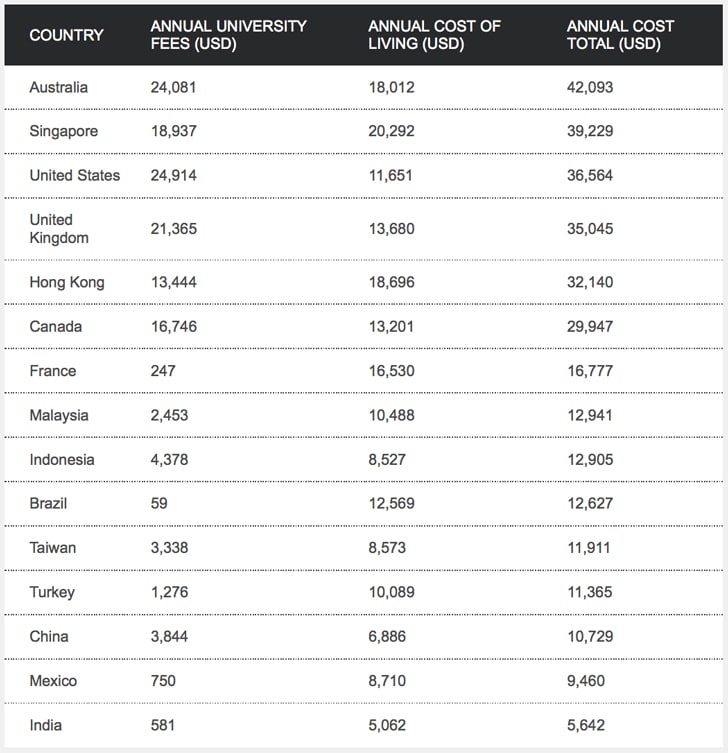New surveys compare relative costs of study abroad and parents’ perception of educational quality
The global investment bank HSBC continues to produce interesting research on global study destinations. This year the bank released two reports that aim to compare costs and parents’ perceptions of educational quality in destinations around the world.
An April 2014 report, The Value of Education: Springboard for success, explores the attitudes of parents in 15 countries towards their children’s education. The Value of Education survey was carried out by international market research giant Ipsos MORI. HSBC’s Retail Banking and Wealth Management Division is reporting again this month on further research it commissioned from Ipsos into comparative costs of study across a range of receiving countries.
A related commentary from HSBC connects the two reports in noting that, “Comparing The Value of Education findings with the latest cost data on attending universities abroad suggests that, broadly speaking, parents think that expensive destinations also tend to offer a higher quality of education.”
The Value of Education survey finds important regional variations in quality perceptions. Overall, however, the US remains highly regarded by parents as a high-quality education destination, with 51% of parents ranking it among their top three countries for quality followed by the UK (38%), Germany (27%), Australia (25%), and Japan (25%).
The survey also found that in countries where English is not the first language, many parents see foreign language skills as the main benefit of an education abroad.
For the second year running, HSBC finds that Australia is the most expensive destination for overseas students. The average international student, reports the bank, would need US$42,000 a year to cover both tuition fees and costs of living in Australia.
Following Australia in the cost table – and rounding out the top-five, most-expensive destinations – were Singapore, the US, the UK, and Hong Kong. Outside of those top five or six destinations in the table, the estimated costs of study begin to fall away sharply. Average annual costs for India, the least-expensive destination in the 2014 ranking, were more than US$36,000 less than Australia.

Most Recent
-
ICEF Podcast: Together for transparency – Building global standards for ethical international student recruitment Read More
-
New analysis sounds a note of caution for UK immigration reforms Read More
-
The number of students in higher education abroad has more than tripled since the turn of the century Read More
















